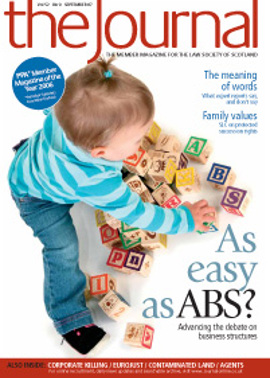Website reviews

The House of Lords, according to Victorian librettist W S Gilbert, did “nothing in particular” – and did it very well. Has 100 years of progress and reform changed this model of efficacy?
House of Lords
The House of Lords’ website not surprisingly shares many features with its sister site for the Commons. See the web review for August 2007 for information on accessing legislation, Hansard, video footage of proceedings before the Lords etc.
There are, of course, some differences and one of the most prominent is a sub-section called “What Lords Do”, which explains their legislative duties, together with their various other roles (albeit in brief). Within this section is a useful guide on how to address a Lord in correspondence, which is actually a lot less complex than I’d imagined it might be. There is also a section on how to become a member of the House of Lords – which carefully avoids any mention of donations or loans to political parties.
Appointments Commission
In fact if you or someone you know wants to be a non-political life peer (at least until they are abolished), you can now apply online. The website includes details of the criteria and exclusions applied and a nomination form. A dull colour scheme and over-lengthy text is presumably thought to be good preparation for the work of a Lord.
House of Lords judgments
www.publications.parliament.uk/pa/ld/ldjudgmt.htm
Of course, another way to become a Lord is to be an exceptionally successful judge and be appointed as one of the Lords of Appeal (Law Lords). As a lawyer, this aspect of the House of Lords’ work is bound to be of most interest.
First, credit where credit is due. The House of Lords were very quick off the mark in making their (often lengthy) judgments freely available on the internet, beating the Scottish Court Service (www.scotcourts.gov.uk) to the punch by two years. Also, the judgments are now produced in PDF as well as HTML, which is much more presentable for handing over to sheriffs and tribunal chairs in the course of legal submissions.
However, the website address (or URL) is unnecessarily lengthy to my mind. Could the House of Lords not manage a separate site (or even a redirect) with a URL which you might actually be able to commit to memory? I’ve looked into this and lawlords.biz (for example) is still available. In the meantime, you can use this: http://doiop.com/lords – don’t say I’m not good to you.
Of more concern though, is the complete lack of internal structure and useful functions. The webpage is just a list of links to decisions, broken down by year and then listed alphabetically – and that’s it. There is no search function, nor is there any indication of a case’s subject matter or who the judges were (unless you click through and read it). Apparently the thought of entering a decade of House of Lords decisions into a database is simply overwhelming for whoever’s in charge here. This is essentially how a seven year old with Microsoft FrontPage would make a House of Lords judicial decisions page (although the seven year old might at least add some pictures of the Power Rangers to brighten things up a bit). This is such a fundamental problem that, unless a decision was issued yesterday and you already know its name, you will always be better off ignoring this page altogether and heading straight for BAILII (www.bailii.org) – which allows you to search for House of Lords cases and includes the Law Lords’ deliberations in cases from as far back as 1838!
Lords reform
Of course, there is now widespread support for an elected upper house, which would alter the character of the Lords significantly. For information, news and resources on the continuing campaign for a democratic second chamber, I’d recommend Elect the Lords (www.electthelords.org.uk), which has called for a deadline of May 2011 for the first elections to the Lords. This would allow those elected to sit before the expiry of 100 years from the first government commitment to replace the House of Lords with “a Second Chamber constituted on a popular instead of hereditary basis”.
Finally, I will briefly mention the website of the crossbenchers (www.crossbenchpeers.org.uk), which succeeds in being modern while feeling traditional. It’s obviously the place to visit for information on crossbench Lords, but I also liked the collection of links they have prepared for a number of their members. It reads like a register of interests, but with external hyperlinks, e.g. noting that Lord Hope is Chancellor of Strathclyde University and then linking to its website at www.strath.ac.uk. A nice touch.
In this issue
- TUPE: stay your hand
- Nothing new under the sun
- ABS - Actual Benefit Soon?
- A chance to succeed?
- Killing in company
- Longer arm of the law
- Agents... a commercial view
- Bad language
- Remote gambling - all bets off?
- What makes a team?
- Managing the fraud risk
- Duties to the court
- Copycats: another nine lives?
- Activity in the courts
- Invoking the UCCJEA
- The men in black
- Scottish Solicitors' Discipline Tribunal
- Website reviews
- Book reviews
- Big names, big issues for annual conference
- Meet the Committee: Cameron Ritchie
- Contaminated land - where are we now?






